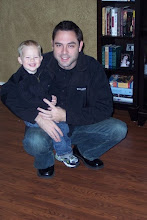
After 4 months of trying, I finally finished Robert Webber's, "The Younger Evangelicals." I haven't been reading for 4 months. However, I wanted to give my full attention while I read the book. I've probably invested about 2 weeks in reading this book over the past 4 months. I don't usually take that long to read a book...it's often a few days and done.
On a flight 10 days ago, I took the book with me and started reading. Since then, I haven't put it down. It's been a great read with incredible perspective. Webber offers his insight to a new generation of spiritual leaders quintessentially defined by their view on postmodern culture and the theological framework of twenty-first century evangelicalism. Webber compares this "new" generation with its two predecessors; groups he defines as traditional evangelicals and pragmatic evangelicals. He defines traditional evangelicals as those who lead primarily from 1950-1975 and pragmatics as those from 1975-2000. Younger evangelicals usher in the twenty-first century and currently serve as the heir apparent to theological leadership in this century.
I don't want to spoil the book, rather encourage you to read it for yourself. It is a great book, very wordy, but a great read nonetheless. I want to point out the way in which Webber concludes the book. He gives the illustration of the "Younger Evangelical Leadership Circle." He qualifies 4 reflective areas through which the younger evangelical operates. These areas are (1) Cultural, (2) Missiological, (3) Spiritual and (4) Theological. Each of these areas reflects upon action or what Webber calls an "embodied apologetic." He places the action - reflection - action principle of utmost importance to the younger evangelical. That is, the YE's will take action in community, in theology, etc, reflect upon what they have done and then take appropriate action to reflect the evaluation of their primary action. His premise is that YE's will constantly change their approach as long as it maintains continuity in mission, spirituality, theology and cultural interaction. Not only will YE's evaluate their action, but they look to the past to see what was "successful" for those leaders who have come before. Webber notes that YE's believe "the path to the future runs through the past."
This book strikes a chord with me primarily because I fall into the YE category. That generation is the one in which I have grown up and currently operate. However, what Webber points out throughout the book is that YE's are seeking a return to an "embodied apologetic" not just methodologies that will gather crowds. Regardless of your generational identity, the goal of the Gospel is to reflect the One whose name we bear daily not to gather crowds. Lives are changed one at a time inside authentic community with other people whose lives have been changed.
If you serve in any way as a pastor or teacher in the local church, I challenge you to read this book. It's a great read that will provide some insight.
On a flight 10 days ago, I took the book with me and started reading. Since then, I haven't put it down. It's been a great read with incredible perspective. Webber offers his insight to a new generation of spiritual leaders quintessentially defined by their view on postmodern culture and the theological framework of twenty-first century evangelicalism. Webber compares this "new" generation with its two predecessors; groups he defines as traditional evangelicals and pragmatic evangelicals. He defines traditional evangelicals as those who lead primarily from 1950-1975 and pragmatics as those from 1975-2000. Younger evangelicals usher in the twenty-first century and currently serve as the heir apparent to theological leadership in this century.
I don't want to spoil the book, rather encourage you to read it for yourself. It is a great book, very wordy, but a great read nonetheless. I want to point out the way in which Webber concludes the book. He gives the illustration of the "Younger Evangelical Leadership Circle." He qualifies 4 reflective areas through which the younger evangelical operates. These areas are (1) Cultural, (2) Missiological, (3) Spiritual and (4) Theological. Each of these areas reflects upon action or what Webber calls an "embodied apologetic." He places the action - reflection - action principle of utmost importance to the younger evangelical. That is, the YE's will take action in community, in theology, etc, reflect upon what they have done and then take appropriate action to reflect the evaluation of their primary action. His premise is that YE's will constantly change their approach as long as it maintains continuity in mission, spirituality, theology and cultural interaction. Not only will YE's evaluate their action, but they look to the past to see what was "successful" for those leaders who have come before. Webber notes that YE's believe "the path to the future runs through the past."
This book strikes a chord with me primarily because I fall into the YE category. That generation is the one in which I have grown up and currently operate. However, what Webber points out throughout the book is that YE's are seeking a return to an "embodied apologetic" not just methodologies that will gather crowds. Regardless of your generational identity, the goal of the Gospel is to reflect the One whose name we bear daily not to gather crowds. Lives are changed one at a time inside authentic community with other people whose lives have been changed.
If you serve in any way as a pastor or teacher in the local church, I challenge you to read this book. It's a great read that will provide some insight.

No comments:
Post a Comment